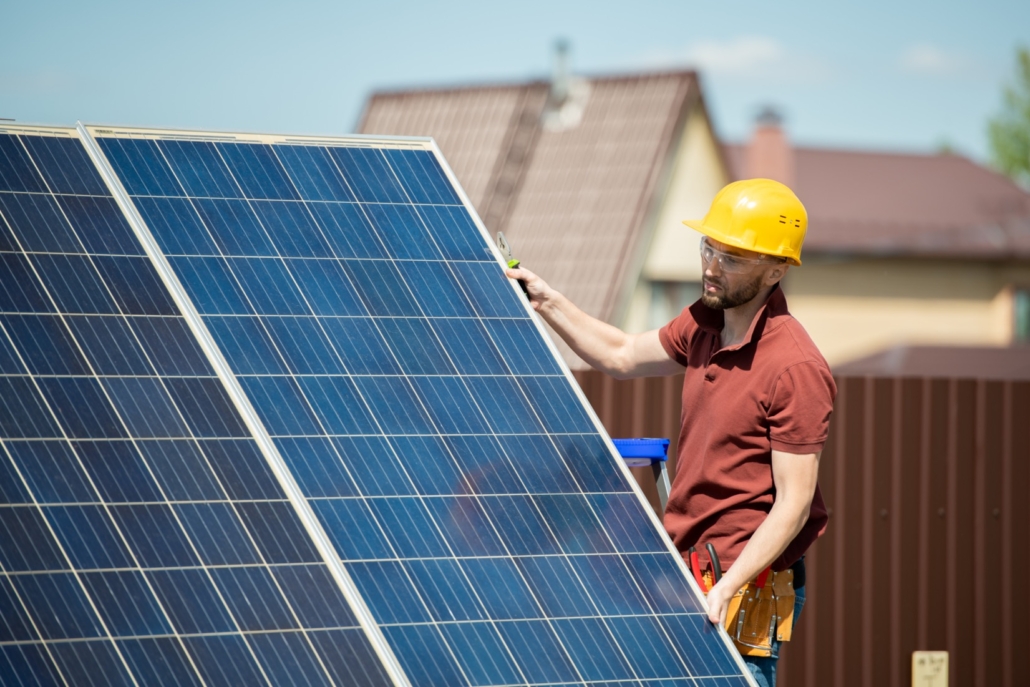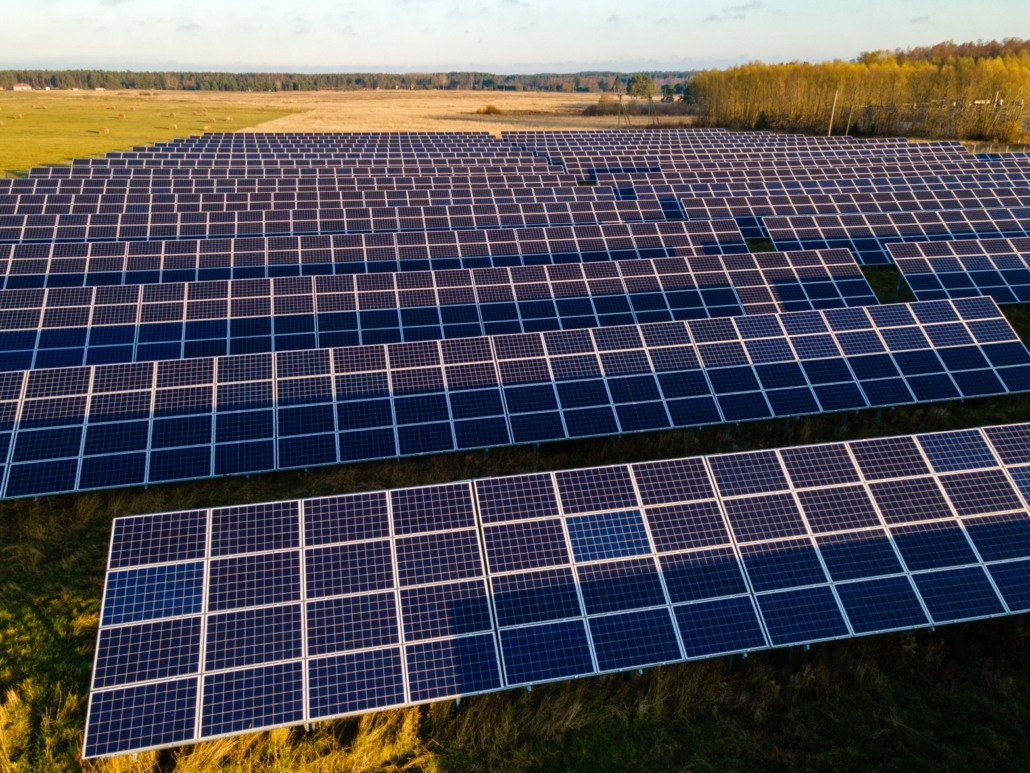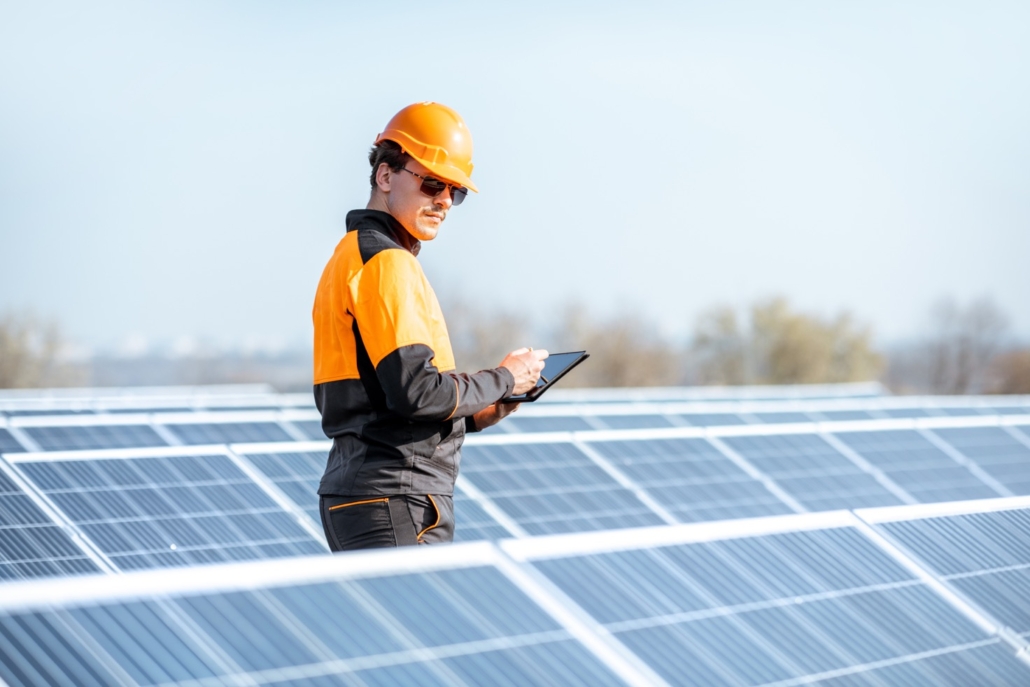Is a Solar Generator Worth It – Buying Guide, How To Choose The Best One

If you’re looking for the quickest way to include renewable energy in your household, the answer is simple – solar power.
This includes using solar-powered generators as an alternative to their original fuel-driven counterparts.
Our article will answer a bunch of the most frequently asked questions surrounding the use of solar-powered generators.
What is a Solar Generator and What is it Used For?
In short, using solar generators is a sustainable alternative to fuel-driven generators.
That means they work by utilizing solar energy to create and store power that can be used in homes, schools, commercial areas, industries and even offices.
How Does a Solar Generator Work?
Several components play an integral part in generating sustainable power. These include:
- Inverter
- Solar panels
- Battery grid
- Energy (the sun)
The whole setup works when the solar panels draw energy directly from the sun and store this power in the batteries. Thanks to this, the batteries supply a constant flow of power when needed.
Why Are Solar Generators So Popular?

Numerous factors make solar generators popular both in residential and commercial settings, including:
Sustainability
Switching to a solar generator is the perfect way to reduce your commercial or residential properties’ carbon footprint
Zero pollution
Since there’s no need to burn fuel to operate, there’s no risk of harmful gasses that the people around you or the environment will be exposed to
Low maintenance
Solar equipment doesn’t have the maintenance issue often associated with fossil fuel generators
No fuel cost
Solar panels are powered by the sun, so there’s no additional fuel cost, making them budget friendly in the long run
Is a Solar Generator Worth Buying?

If you’re in the market for a solar generator, consider that these units are best used for running or charging smaller appliances.
You’ll most probably be able to run your whole household on them if you limit it to the basic appliances and if they have energy saving features.
Since they don’t require fuel, are portable and don’t make a mess, they’re also ideal for camping. So for certain applications they are worthwhile, but it does depend on your need.
They are very valuable if you prioritize getting off the grid and if you can install enough panels to power all appliances you want to use.
Points to Consider When Buying a Solar Generator
Since solar generators are considerably different from their fossil fuel-based cousins, there are a few pointers to consider before buying one.
Power
Remember, not all solar-powered generators are the same. Some have a higher maximum power capacity, which means they can supply more power than other models.
This is important if you want to supply power to your fridges and other large appliances.
Size
Size relates to the inverter rating. This is the number indicating the number of watts the machine can use at any given time.
Here you also need a battery that can handle the amount of energy being harnessed to meet your power requirements. Be sure to discuss your expectations with a solar-certified consultant.
Also make sure the physical dimensions are appropriate for where you plan to install the unit. You need space for the generator, but also consider the position of the solar panels that need as much sunlight as possible.
Effectiveness
If you’re considering a solar generator, you’ll want one that’s efficient enough to do what you need it to.
On average, solar panels of 100 watts can only generate 400 w-hours each day before needing to be recharged.
The average refrigerator with a freezer will require about 2000 watt-hours per day. That being said, you’ll have to opt for a solar generator with 2000-3000 watts to keep your fridge running the whole day.
So, it’s essential to calculate the daily/monthly watts needed so you can buy accordingly.
Noise
A bonus with solar-powered generators is that there isn’t any noise. This will be a welcome relief if you’ve been deafened by the traditional lawnmower noise emitted by diesel versions.
Cost
Solar-powered generators are considerably expensive when you buy them but cheap in terms of operational costs down the line.
They may even save you money compared to using the grid. So, calculate these expenses and savings to understand the real cost and whether it’s a wise investment you can afford.
However, don’t buy too cheap because your generator must align with your current and future power goals. So, models, brands and features to get value for money.
Solar Generator Pros

There are several important pros to choosing a solar generator above some of the other fuel-based options.
Renewable Energy
The buzz phrase in achieving planet conservation goals these days is without a doubt “sustainable energy.”
Investing in a solar generator reduces the harmful fuels and gases emitted by your household.
Research has shown that typical American home uses anywhere between 19.3 and 91.5 tons of CO2-equivalent annually.
Switching to solar can greatly reduce this. It’s one of the easiest ways to reduce your carbon footprint and add clean energy to your work or office space.
Cheaper Maintenance
As fuel generators are made with motors and a host of other moving components, they need regular servicing.
Solar generators on the other hand work autonomously and are virtually maintenance-free.
No Harmful Gases
Fuel generators run on fuel, and this means harmful gases are produced and released into the air around it.
If you position it close to a door or entrance, this can be harmful to people in the home or office. Fortunately, this won’t be the case with solar generators.
Savings on Electricity Bills
If you opt for regularly using your solar generator, then you’ll see a considerable saving on your electricity bill. This can make up for the initial capital investment.
Safer
Studies have shown that more than 900 people died in the U.S. between 2005 – 2017 as a result of carbon monoxide poisoning from generators.
This happens when fuel generators are placed in unsafe areas. With a solar option, there are no harmful gasses.
Noise-free
If you’ve ever used a fuel generator, then you’ve undoubtedly heard the loud, “lawnmower-like” noise they make.
It can be pretty annoying, especially if you’re in an office setting or a house where a baby needs to sleep! Solar generators are noise-free and can run without disturbing anyone.
Solar Generator Cons
To have an objective view of solar generators, it’s important to consider a few of the drawbacks before you make your final decision.
Higher Upfront Costs
For the most part, traditional fuel generators are considerably cheaper than their solar counterparts.
However, while your initial cash output will be almost double, it’s worth noting that the operation costs are much less. This essentially means that you’ll spend less over the lifespan of the solar option.
Power Supply Can be Limited
Before you invest, it’s crucial to know that solar-generated options mostly likely won’t be able to power your whole home.
The reason for this is that solar batteries are limited by their size. Fuel options can quickly be refilled at any time, which isn’t the case with solar generators.
You must wait for the sun’s power to be changed into electricity.
Slow Recharge Rate
While there is an array of benefits to using sustainable energy, solar generators can only be charged when the sun is out.
On average, a solar panel bearing a power output of 100 watts usually takes an average of 9 hours to successfully charge a mid-sized solar battery. Fuel generators don’t require the sun to run.
Solar Generator vs All the Others
Here’s a side-by-side comparison of the key differences between a solar generator and the other available options which include inverter, portable and diesel generators.
| Features | Solar Generator | Inverter Generator | Portable Generator | Diesel Generator | Natural Gas Generator |
| Basic principle | Requires solar energy to function | Runs on gas to produce electricity – Diesel models are also available | Provides electricity by running on gas | Works by continuously refilling with diesel | Relies on natural gas rather than fossil fuel |
| Recharging time | 100W will take about 9 hours to recharge | No recharge time – refill with gas or diesel, depending on model | No recharge – refill with gas | No recharge – refill with diesel | No recharge – depends on the availability of a gas line |
| Efficiency | Can run small appliances | Ideal for running small appliances, electronics and computer systems | Great for plugging in extension cords and small appliances | Depending on the size, it’s possible to run a home in an emergency | Can run a home, depending on the size, but most people prefer 8.3kW to run essentials |
| Average cost | The initial expense is higher than most other options. Price varies depending on size, capacity and brand. | Cheaper than most other options but the price depends on brand and capacity | Consumers can expect to pay anything from $1,200 to $2, 500 depending on brand, size and dealer | Diesel generators are considerably cheaper than solar options. Prices vary depending on brand and capacity. | Requires installation which could result in additional costs. |
| Key pros | – No noise – Zero fumes – Cheap to maintain – Renewable energy |
– Requires less fuel – More eco-friendly due to lower carbon emissions – Lightweight & compact |
– Safe and easy to use – Lightweight, can be carried around – Cheaper than other generator options |
– Durable – Easy access to fuel – doesn’t require solar energy to recharge – Cheaper to maintain – Less flammable than most other generators |
– Natural gas is cleaner and less expensive – Less expensive than carbon-based fuel such as diesel |
| Key cons | – Slow to charge – Limited power supply – Higher initial costs |
– More expensive than conventional generators – Features a lower power output |
– Require maintenance – Require gas to function – can be costly – Emit higher levels of carbon monoxide |
– Expensive to buy – Diesel price is not stable – Noisy to operate – Requires regular maintenance |
– Requires access to the main gas line so it won’t work if the supply is interrupted |
| Who should buy it? | Anyone looking to support a sustainable energy option | Inverters are perfect for powering telecommunications devices, computers and other sensitive technology since many devices are sensitive to the quality of power they use | Ideal for providing power to tools – great for job sites | Diesel generators are ideal for use during power outages as they can be started up in a matter of minutes | Natural gas generators are ideal for residential or commercial properties with access to a natural gas line as it’s very cost-efficient |
FAQs

Q: Can a solar generator be used indoors?
Yes. Solar generators are regarded as the most effective generator to be used indoors since there’s no noise, fumes or fuel. A bonus is that they’re portable and can be used while being charged by the sun.
Q: Can you hook a solar generator to a house?
The good news is that you can quite safely connect your solar generator to your home. Simply use a generator transfer switch that is installed to the electrical panel and operates as a go-between from your electrical panel to the solar generator.
Q: Can a solar generator power an air conditioner?
Yes. Depending on the model and size generator as well as the specifications of the air conditioner, it’s possible to run an air conditioner for a few hours. Be sure to check the surge and running power requirements of the air conditioner.
Q: How long do solar generators last?
Generally, solar panels can last anywhere between 25 to 35 years. Your solar generator will continue working as long as the panel keeps harnessing the sun’s energy. Ensure that the panels are placed strategically and away from potential damage.
Q: Can I leave my solar generator plugged in all the time?
Yes, if you make use of a solar trickle charger. This will ensure that the battery has over-charge protection and doesn’t become damaged from excessive use or charging.
Final Thought

It’s important to be sustainable and the easiest way to make a considerable impact is to invest in solar wherever possible.
In doing so it’s crucial to understand how the whole concept works and to get equipment of the right size and capacity straight out the gate.
Do the research, take the time to do the math of how much power your property requires and above all else, compare options.
Investing in the right solar generator will see you reduce your carbon footprint as well as your electricity bill!


